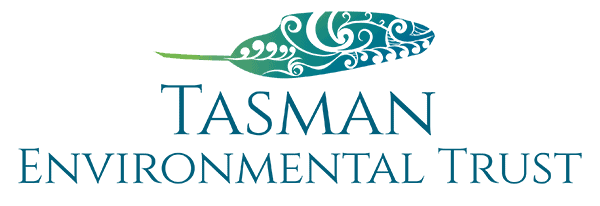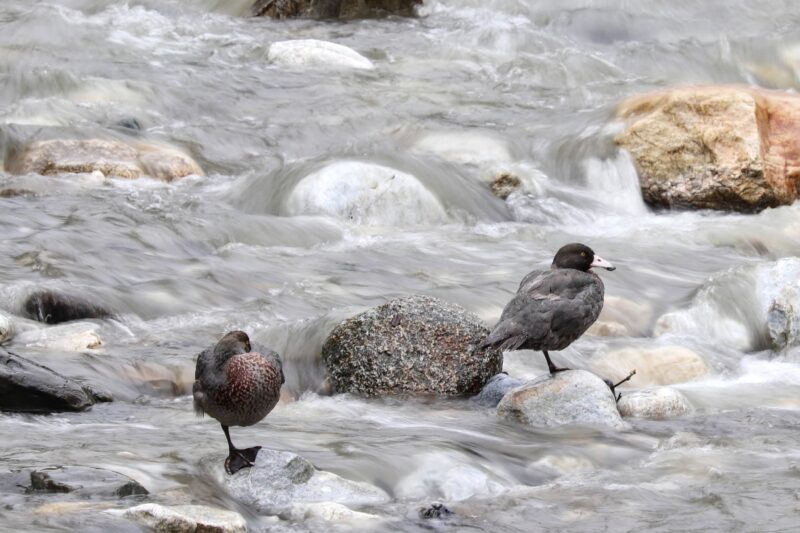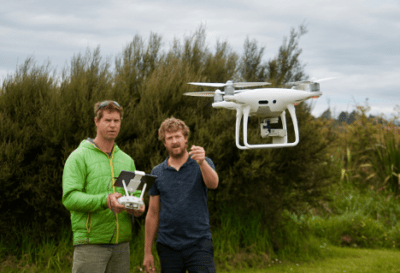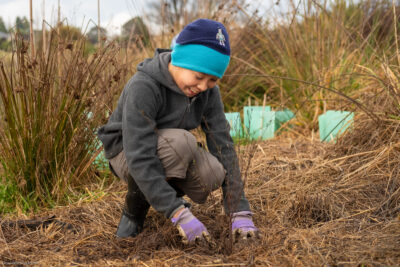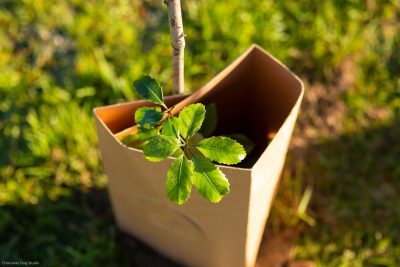Unless you’re into tramping or back-country angling, it’s likely you’ll have only encountered the whio/blue duck on the back of a $10 note. With less than 3,000 of these Nationally Vulnerable birds remaining, there’s a good chance that’s how it would’ve continued. But a group of landowners in the Motueka Valley catchment has come together to give the whio a fighting chance.
Iconic back-country waterfowl
Whio are only found in New Zealand. They like their rivers lively—clean and fast-flowing, preferably with some white water to keep things interesting. They were once widespread across New Zealand but are now confined to remote catchments in the North Island and down the West Coast in the South Island. They’ve suffered habitat loss and are very vulnerable to predation, especially by stoats.
Thanks to trapping efforts by Friends of Flora in Kahurangi National Park, whio are starting to make their way into the Graham River and surrounding areas. Farmers for Whio aims to connect trap lines with Friends of Flora and increase safe habitat for whio populations to expand into.
The group’s vision is healthy and secure whio populations on the Graham, Pearse, Baton and Motueka rivers.
Farmers for Whio’s approach
The group is installing and maintaining a landowner-supported trap network along approximately 30 km of river corridor. The project is taking a phased approach beginning with the Graham, Pearse and Baton valleys, as whio are known to be moving into these areas.
More than 2,400 traps are being positioned for this network. The trapping will bring major benefits to other birdlife, including korimako, kererū, weka, ngiungiru/tomtits, kakaruwai/robins, kārearea/falcons, and mātātā/fernbirds.
TET’s role
TET is actively supporting Farmers for Whio by providing signficant input and resources into:
- Project planning
- Financial management
- Policies and procedures, including Health & Safety
- Insurance
- Auditing
- Fundraising
- Contract management
We are also assisting the project in building key partnerships and establishing annual surveys to track the programme’s progress.
This is an exciting project and we’re committed to providing ongoing support and oversight to ensure Farmers for Whio’s long-term viability and success.
If you’re wanting to get your own conservation project off (or on!) the ground but are feeling a bit daunted by the admin, get in touch. We can give you the support you need.
